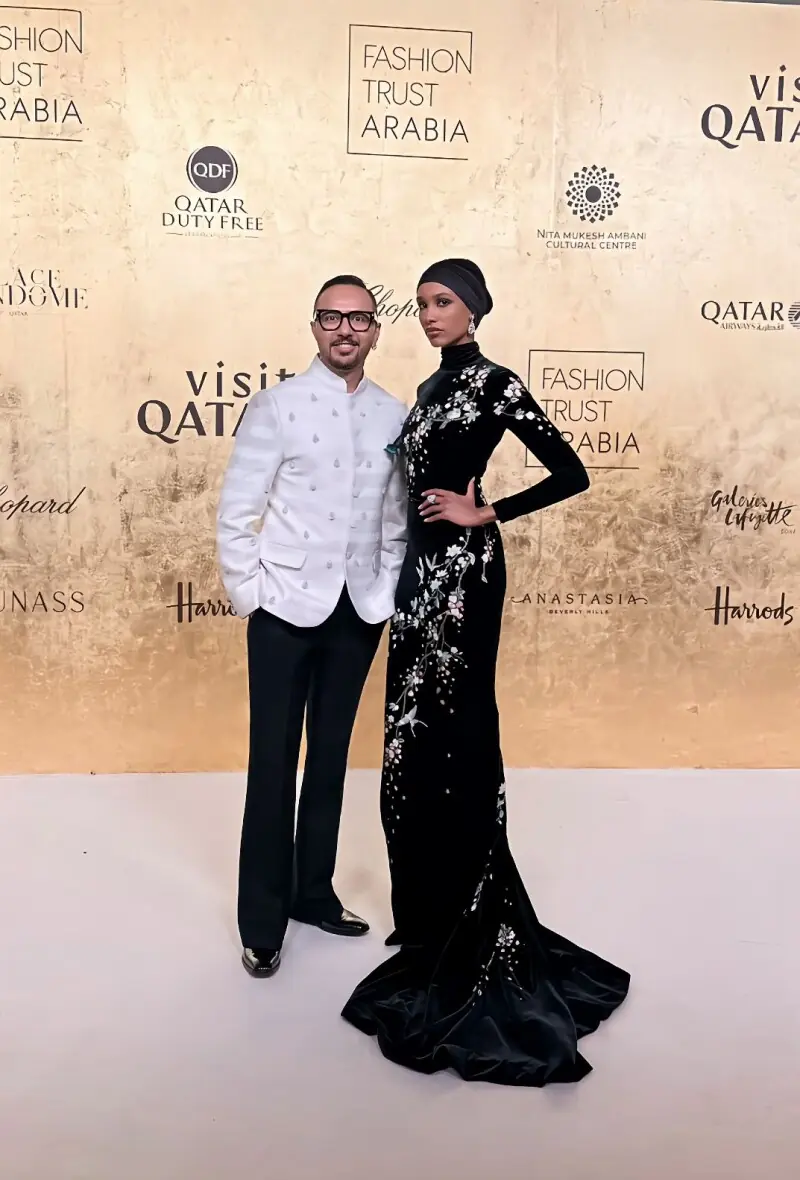Day 1: Here's what's happening at Karachi Literature festival 2017 [Live]
We're all set for the Karachi Literature Festival 2017!
From the inauguration to the sessions, stick with us as we let you know in real time what is happening at this year's KLF.
Before you head to KLF, here are some things you'd wanna know
Literature loving foodies worry not! The food court at KLF has an amazing range of goodies for you!
Stalls include Dominoes, Lals, The Sauce, Bond Street Waffles, Slice of Life, SnoCupz, Papu Chaat,, Sea Fiesta Espresso and Desi and Co. There's also a newcomer by the name of Bright Decor that serves Parsi Cuisine. Can't wait to try that!
Make the most of your KLF trip by hitting the book fair! The stalls there have absolute gems for the book worm! What better place to have a book haul?
Don't forget to check out the art exhibition at the Society Suite.
9:00: Heading out
Just wrapped up the sessions and now heading out.

7:50: Sessions
No Honour in Honour Killing
Politician and academic Nafisa Shah discusses her book on honour killing and the qiyas law.

Says the politician, "I thought being a politician would mean the end of intellectual life and a journalism career. But it wasn't. It simply gave me a new platform."
About honour killing, she says, "You have to look at customs with reference to the state structures they operate in. Are state structures inadvertently supporting the customs?"
She adds, "We are actually still operating under colonial laws, which had combined with Islamic tradition to form some sort of common law."
She also comments on how our legal structure enables honour jillers to walk. "People kill but the state buries these victims."
Writer and journalist Mohammed Hanif says everyday the newspaper carries stories of women dying in bizarre circumstances.
Looking at the journalist's aspect of these news, Hanif includes himself and says, "We were predatory journalists, trying to make a career out of other people's miseries. That's how most journalists start off sadly."
On Nafisa Shah's book, the journalist says, "Nafisa told me 20 years ago that she wanted to write a book. It took a long time but she kept at it, and here is the book. This proves that whatever your passion is, you must persist despite distractions
Skewered History: How History Dies with the Syllabus
Educationist Anum Zakaria speaks on the importance of scrutinizing history textbooks.
Says the researcher, "Memories are fluid, they change and get censored over time. And the stories that stay alive are the ones that are sanctioned by the government and find their way in textbooks."
According to author Newal Osman, "History is a version of the past, next question is whose version of the past, which opens up the multiplicity of narratives."
She claims, "History is epistemologically fragile that is built from fragments like Jinnah letter to mount batten. So never a complete version, making it vulnerable to misuse esp by political parties to legitimize their misuse."
Qasim Aslam, co-founder of The History Project Limited, comments on the assessment system, saying, "The assessment system fundamentally drives what is going to happen in a classroom. If child diverts from what's in the book, the grading system penalises him or her. Lower marks has repercussions for future admissions and other future outcomes. A whole system tells the child he or she is wrong that way."
Scholar Abbas Husain points out, "The issue is the enormous weightage given by teachers to the books. Emphasis on regurgitation is problematic
He adds,"When children are provided multiple perspectives, their innocent hearts are guided to the most coherent narratives."
Anam points out how history is twisted and selective, "Certain histories are more okay than others. Archeological sites like ancient Hindu temples in Kashmir have been reappropriated as Buddhist. Conversely, Sikh history we're okay with because of their interactions with the Pakistani government. Direct interactions are important to undo the effect this has on our perceptions of various communities."
She adds, "But the special advantage of Pakistan is that our first generation is still alive. We should prioritise their stories."
Pakistani Music: From Raagas to Rock
Taimur Rahman has prepared a presentation for the session about the journey of rock and ragas.

Taimur explains how access of music grew. "In the 1980's there was the cassette because of which there was a huge transformation in Pakistan and music became accessible."
He shows a slide where there is a picture of Zia ul Haq next to a picture of Nadia Hussain. The slide makes it seem as if Zia is staring at Nadia disapproving eyes.
"But Nadia not caring and looking the other way, singing as she wanted," says Taimur.
On music itself, Tairmur says, "Like fast food, music has also become the same now. The idea is its machine produced, it's a commodity, quick gratification. It's about the productivity than the quality"
Singer Tina Sani reveals that for her, it was about the music and not the business "We got all these cheques from EMI and Radio Pakistan, but it (money) didn't matter when we were doing music, it was such a pleasure to be doing it (music)," says Tina
About classical music, the singer explains, "Raaga was only sung in places with a Muslim majority because the Hindu goddess shares the same name."
Sketches vocalist Saif Samejo reveals that the band's origins are nothing special. "Don't how but we just formed a band, listening to rock and roll. We didn't know anything about raagas. We just sang after girls and people told us what worked and what didn't."
Taimur comments on the range that is present in present rock and pop music. "There are several art forms combined in rock and pop music, which explains why they have become so successful as opposed to classical music which during the old days was only focused on the vocals, so the singer was made to sing from behind a veil so people would just focus on his music."
Tina Sani has the best conclusion for the betterment of music;
7:30: Checking the art exhibition
Check out the art work at the Society Suite.

7:20: Out and about! Checking out KLF
While some of us enjoyed the performance by Shayma Saiyid;
A couple of us decided to roam about and check out the rest of the festival because we weren't as lucky as this guy!


7:00: Ayesha Jalal gives the Keynote address
Here is what the historian had to say;
According to Ayesha Jalal, most Pakistanis lack the capacity for critical thought. She claims, "Pakistan most needs an education system that encourages critical thinking."
She mentions Coke Studio. "The transnational reach of creative arts parallels the trajectory of Pakistani music."
Ayesha Jalal comments on how it is common for an individual to be successful despite the lack of a national culture in an authoritarian regime. "Persons become political, public arenas become apolitical in authoritarian regimes."
She adds, "Pakistan is engaged in a battle for its soul and this plays out in the arts.
6:40: A few of us snuck out to check the the book stalls
Can you blame us? The collection here is amazing!
And we don't wanna miss out on these deals!
6:30: Award ceremony for the KLF prizes
Arfa Syeda Zehra announces the KLF prizes and has people swooning oover her more than the winners
Yasmin Khan gets awarded the Klf Pepsi prize in non-fiction for her book The Raj of War a book about India during the second World War.
Yasmin Khan announces she will donate her prize money to the Charles Wallace Pakistan trust.

Omar Shahid Hamid is awarded the KLF Getz Pharma Prize in fiction for The Spinner's Tale
The KLF Infaq Foundation prize for Urdu literature is awarded to Nasir Abbas Nayyar.
6:20: Shabnam arrives
Thats right people! Shabnam has entered the building!

Wow she is surrounded by security. Can't blame her, look at all those fans swarming around her!
6:00: Indian High Commissioner Gautam Bambawale takes the podium
According to the Indian High Commissoner, "India wishes Pakistan well in it's nation building processes. India wishes to see a stable, prosperous Pakistan. A Pakistan which is at peace with itself, it's neighbours and world at large."
5:40: Ameena Saiyid gives her welcome speech
Speaking at the 8th Karachi Literature Festival, founder Ameena Saiyed expresses her hope that the Karachi Literature Festival succeeds not just as a literature festival but also a peace festival. She says the Karachi Literature Festival is a defining event in Karachi's landscape.
Over the course of two days, 80 speakers will share their unique perspectives in 200 sessions, from which she says, "There are 8 speakers from India and we hope this will strengthen relations between India and Pakistan."
According to the founder, "The whole idea is to make books easily accessible to everyone."
5:30: Just got to the Festival and were greeted by these security guards!
Wouldn't wanna mess with these ladies!

Sessions on Day 2 shall begin from 10 am. Check out the schedule here.

![Day 1: Here's what's happening at Karachi Literature festival 2017 [Live] Day 1: Here's what's happening at Karachi Literature festival 2017 [Live]](https://i.dawn.com/primary/2017/02/589db8a17c745.jpg)








Comments